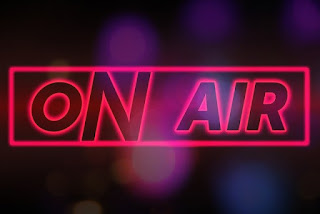 |
| Image Source: Pixabay |
I recently took this question to Twitter and my PLN overwhelmingly disagreed with the notion of requiring students to keep cameras on during virtual class meets, unless it was necessary for the lesson or activity. While I can't say I was surprised that most educators were opposed to a mandate, I was frankly expecting a more even split. Based on my Twitter poll, 62% of respondents opposed the mandate, for 23% it would depend on the lesson and only 15% were in favor.
In our district, all teaching will be virtual until further notice, but instruction will be much more rigorous than it was in the spring. With a solid digital equity plan, most instruction will be synchronous, participation in video meets will be required and attendance will be taken just as it has been when students were on campus.
And cameras are required to be on. That's a non-negotiable. No longer a mandate, though highly encouraged. See update below*
While I don't always agree with all of my district's decisions, this time I'm 100% on board. Here's why?
- Accountability. This not about a gotcha. We all know full well that students will slack if no one is holding them accountable. I will speak for myself. Going virtual shortened my commute, but didn't lighten my workload. However, having to be on camera for meetings pushed me to be fully present and at my best. If all my work would have been asynchronous I may not have ever gotten out of my pajamas. This leads to my next point.
- Productivity. We want our kiddos to be fully present and productive, not just online. I've had conversations with many colleagues that will admit they are more focused when on camera. When cameras are off, they would tend to multitask, check their email and their attention would drift. They were overall not as productive and engaged in the activity or conversation.
- Body Language. Our gestures and facial expressions speak louder than words. Body language can tell us how receptive they are to the material if they are confused or totally checked out.
- Relationships. "No significant learning occurs without a significant relationship" (James Comer). Most, or all, of your students, will be new to you and it's hard to get to know someone new without meeting with them face-to-face. If in-person instruction is not an option, this is the main reason we need to keep our cameras on. I personally find it very awkward to have a conversation with someone who's turned off their camera - we may as well have a phone meeting.
Perhaps you haven't given this much thought or maybe you just don't agree that it should be required. Virtual school is still an unchartered territory and we are still learning as we go along. As much as we are trying to replicate face-to-face instruction, let's not kid ourselves, it's not the same. It's a given that student cameras will be on during demonstrations and presentations, but regardless of the content we teach, we win when we know our students well, academically and socially. Keeping our cameras may not seem like a big deal, but accountability, productivity, communication, and good relationships with our students make us more effective educators.
I don't start back until August 3rd and so at this point, I have no idea if staff will have the same requirement. I'm also curious how this will play out with students, so I may likely address this topic once the fall semester is underway.
If you have a strong opinion either way or would like to share an inspiring or funny story, I'd love to hear from you. You may comment below, email me or reach out on Twitter.
Until next time, stay well and stay strong. And remember it's the tidbits that make it all grand.
*Update: It is not mandatory for students to have their cameras turned on, as per district communications released in September. We are, however, asked to create conditions for students to want to share their cameras, their attendance or grades should not be negatively impacted based on their decision to not share video.


